Culture and connections, the driving force for success
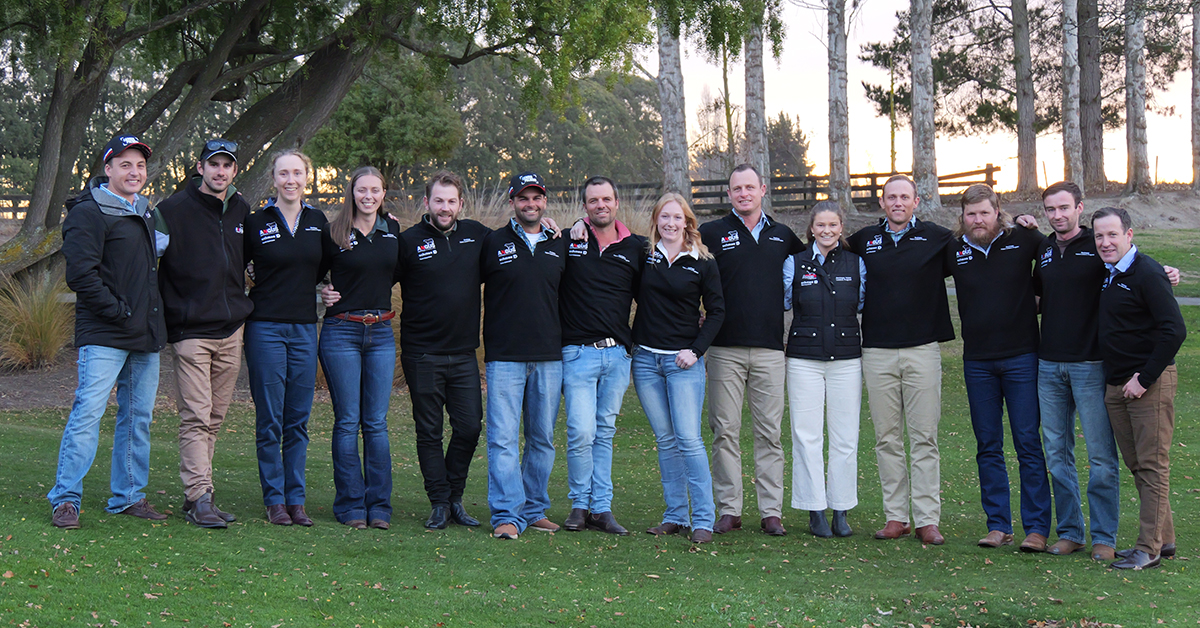

GenAngus can only be described as a personal journey for each person that attends, but the connections, the education and the growth that each person walks away with at the end are remarkable.
One thing that is amazing to see is that despite each person having applied to attend GenAngus for their own reasons and going through their individual GenAngus experiences during the event, how similar the themes are that come out when asked questions around their reasons for applying, their take homes and what they hoped to achieve.
GenAngus is a program that has been tailored to drive success and when you read about their experiences, there can be doubt that each of the incredible young leaders that made their way to Christchurch are well on their way.

Kate Reid, Inverell New South Wales, was encouraged to apply for GenAngus by somebody else that had done the program.
‘GenAngus has a really big reputation and that was one of the biggest drivers behind why I applied.’
‘I also wanted to do something different. I am really trying to work on my own personal growth so that I’m a better person, a better family member, friend and a better employee.’
Kate took a lot away from the Pete Clark, 21 Whispers session on mindset.
‘It’s all about having your mindset really well set up and ingrained and being consistent and persistent with that.’
Kate also enjoyed the topics that she does not know a lot about like finance, succession and insurance, ‘These are not topics that you are really taught at uni or something I am doing in my current role, so it was something different to get a good experience with,’ she said
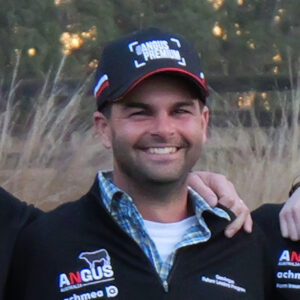
Nathan Mura from McKinlay in northwest Queensland applied for GenAngus because he wanted to meet like-minded people in the agricultural sector.
‘I didn’t have much experience in the Angus seedstock business, and I knew there would be a lot of opportunities gained from this experience.’
Nathan believes he took something from the entire GenAngus program and the education opportunities it offers.
‘We’ve had some unbelievable experiences from financial presentations all the
way through to mindset coaching, marketing, breeding and genetics, with all of those learning opportunities being second to none.’
‘On top of that has been the amazing opportunities to learn from some of the great minds both in agriculture but, also inspirational leaders outside of agriculture that have been opportunities you wouldn’t usually get outside of a forum like this.’
‘One of the highlights was Sir Graham Henry, arguably one of the best rugby coaches of the common era.’
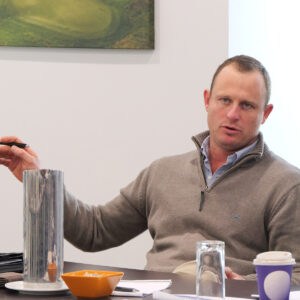
Murk Schoen, from Corowa in the southern Riverina region of New South Wales saw GenAngus as a program that drove, ‘Learning about ourselves, learning about the finer details of running a business, whether it’s budgeting or succession planning, or learning about personality traits and how to get the most out of out of people and to adapt and change.’
Murk was fortunate to have been involved in the initial concept of GenAngus and had always said to himself that he would go back and apply.
‘There were so many things there that I feel that I needed to learn and to get some help with. For me this year there’s been a pivotal change in our business, so it was kind of now or never. From what I understood the program had developed into over time, it was going to really assist me now in taking the next steps not only in our business but certainly throughout our local community and the broader ag community, so it was a no-brainer to apply now.’
When asked about some of his ‘wow’ moments at GenAngus, Angus Street of New Zealand Merino Company was a good one for Murk.
‘There were some home truths that I connected with and some things I have been kicking down the road for far too long that I know I need to adapt and change and deal with.’
‘I also think market insights with Simon Quilty was great in actually understanding to reach out and gather this information really precisely before we’re making big decisions on farm.’
The breeding and genetics and budgeting sessions were also sessions that Murk got a lot out of.
‘It was bringing breeding decisions back to basics and putting some maths around your breeding decisions. With budgeting, it was just homing in and being able to identify where we should direct our energy when it comes to the budget and that if we have limited time within our business, it’s really important to analyse those things and know where we will get the most bank for buck.’
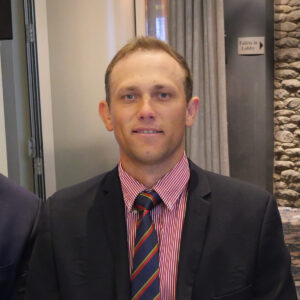
Sean Wright from Banana in central Queensland applied for GenAngus because of a ‘catchphrase’.
‘It’s networking coming here and learning and engaging with people who are like-minded and want to be doing the same things that you want to do; they want to innovate want to become better.’
‘The main thing that we’ve learned this week is creating a legacy in a culture that we can all follow.’
Having a background in rugby, the session with Sir Graham Henry was a highlight for Sean.
‘That was a really special thing for me. That was an opportunity that unless you’re in the rugby space you’d probably never be exposed to and to have someone like him who’s a natural-born leader and created an everlasting culture that you can see in the All Blacks is something that was really special.’

Luke Stuckey, Flynn, Gippsland Victoria, like many applied for GenAngus to get out of his comfort zone.
‘I’m one person probably not great at getting out of my comfort zone so this was a bit of a challenge for me, and it’s ended up being a great experience while being in a safe place to do so, amongst plenty others that are here for the same reason.’
When asked what he has gained from GenAngus, Luke has enjoyed the connections and relationships he has made.
‘All of a sudden I’ve got really good mates from Western Australia, Tasmania, Northern Queensland, New Zealand and everywhere in between.’
Another fundamental learning for Luke was growth. ‘If I can improve myself then I can take that home and help others and be a better boss, a better cattle breeder and become a better person overall,’ he said.
Reading the required reading of Legacy by James Kerr was also a game changer for Luke.
‘I like the idea of leaving a good legacy, that is to leave a place not the way I found it, but better.’
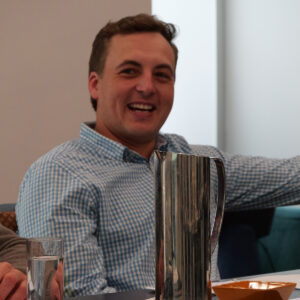
Lincoln McKinlay, from Inverell, New South Wales had no trouble summing his GenAngus experience.
‘It has been a phenomenal couple of days. It’s been an unreal experience in the fact that it’s such a big cross-section from so many different parts of not only the country but the industry, that are all focused around the Angus breed and are wanting to develop themselves, learning what it takes to be a better person, not only in the breed as a future leader but in the industry as well.’
Lincoln’s reasons for applying for GenAngus were all around self-development.
‘I’m very excited about growing as a person and as a person in the beef industry. I have a lot of friends and clientele that are that are heavily involved in the Angus breed and run some phenomenal operations in Australia.’
‘I’ve seen some of those good friends come through the program and to have the opportunity to be surrounded by like-minded people that are all looking to better themselves as people in the industry and people in the Angus breed, I just thought it was a great chance to take that next step.’
‘GenAngus is a nice combination of industry people, Angus breeders and leaders, so the diversity that you come away with out of this course is phenomenal.
‘It’s just a great balance and a really nice combination of things that are really going to help us go to the next level within not only our industry but as Angus breeders and as people.’

Sophie Hanna from Walwa in the upper Murray area of Victoria applied for GenAngus because she saw it as a phenomenal opportunity for professional and personal growth and development.
‘The line-up of speakers that we’ve had and the team that we’ve been working with has been a fantastic platform for growth in those ways.’
‘The key takeaways from my GenAngus experience have been the value that you get from working with others. Collaborating with others was a key theme that has come across from the multiple different speakers we’ve heard from in the discussions we’ve had together.’
They have shown importance of culture, communication and understanding other perspectives, and using these different ideas together to work towards somewhere better to innovate.’
‘Once you know where you are, think again to progress in other ways that you haven’t quite done before.’
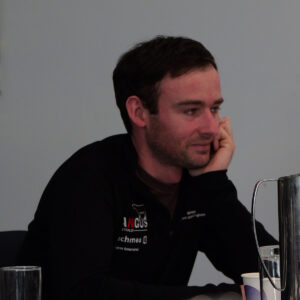
Cody Best from Deloraine in Tasmania described GenAngus as an ‘awesome experience.’
‘I have learnt a lot of life skills and a lot of stuff I can incorporate into our business and it’s really going to secure my future longevity. It is a great time to be doing it because markets have been pretty volatile and tough lately.’
For Cody the session about mindset was a standout.
‘A lot of people probably don’t put the value into mindset and how important it is, but it plays a significant and important role.’
‘But overall, every module we had there was something to learn, there wasn’t a module that didn’t have value adding.’
And when he returns home, Cody plans to work on the goals he sets for himself in his business.
‘You’re better off setting small or more achievable goals, because setting goals that are too big and then potentially failing at them gets you down. So instead, you want to have more consistent goals that are achievable.’
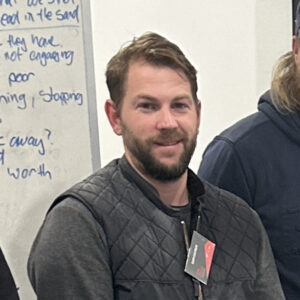
Sam Hayden, Moriac, Victoria applied for GenAngus after talking to other people in the industry that suggested he would get a lot out of the program and overall, he enjoyed the whole GenAngus experience.
‘There have been so many different aspects to learn about in the cattle industry,’ he said.
‘How it works, insurance, marketing, feeding and just everything, there’s been so much information, which has been great and I’m really looking forward to getting home and taking bits and pieces and seeing how I can work that into my breeding and cattle operation.’
But when asked what his favourite session was, like many it centred in mindset.
‘Do little things one at a time, those incremental things. If we can just continue to do 1% improvements every day it adds up gradually over time and becomes a big result, rather than focusing on the big end result from the outset.’
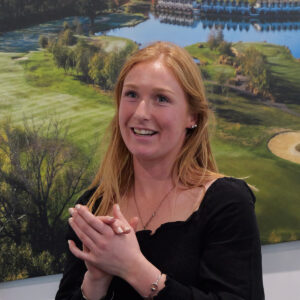
Emma Hussey hails from the Canterbury high country in New Zealand and was sponsored by Angus New Zealand to attend.
‘Being part of the Australian group has been amazing to see different perspectives and hear different points of views from across the ditch.’
‘It’s been great to have them bouncing ideas off me and me bouncing ideas off them.’
Emma enjoyed the opportunity of attending a well-rounded program and saw it as a ‘once in a lifetime opportunity,’ that exposed her to things she had not spent a lot of time on beforehand.
‘This week we have been here learning heaps of information, ranging from budget planning, succession planning, marketing, mindset and creating and cultivating relationships.’
When she returns home the big items Emma hopes to work on are the marketing and budgeting side of things for both her personal business and the family farm.

Jim Burrows from north Canterbury in New Zealand was also sponsored by Angus New Zealand to join GenAngus. It was the first time he has attended a program like GenAngus and was very grateful for the opportunity to attend.
‘I probably didn’t appreciate just how high a level of content GenAngus was going to be and when I heard it was a young Angus conference, I just assumed I was too old for it, which clearly, I wasn’t.’
‘We have been learning everything from mindset and personal improvement, to accounting and managing finances and marketing.’
‘I really enjoy the financials and looking at the bottom line and working hard on that as I probably take to that better, but the mindset side of things was great and really something I need to work on personally.’
But as a Kiwi, Jim could not go past the session with Sir Graham Henry because, ‘He’s like a God to New Zealanders.’

Joe Dewar, Guilderton, Western Australia applied for GenAngus for the opportunity to reset, get off farm and meet people, which he saw as almost as important as the learning side of the program.
His key takeaways from the program were in the financial and benchmarking session and marketing presentations.
‘There is always improvement that we can make in our business but if we don’t really know where we’re at then we’re not really going to be able to get where we want to go.’
‘And marketing is not my forte, but the tips and tricks around telling the story of everyday farm life and not just focusing around the bull sale has been key for me.’
When Joe returns home and looks to implement his learnings on farm, he is going to let everything ‘marinate’ and then look at what he can implement.
‘I am going to start drilling things down and from the great ideas I have work out what I can practically implement.’
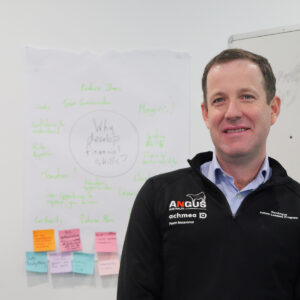
Elliot Connors from Scone in the Upper Hunter of New South Wales really enjoyed the teamwork element to GenAngus and the opportunity to build his Angus family.
‘It has been great getting to make connections with twelve other people in a room that are from all parts of Australia and New Zealand that all have that one thing in common, which is passion for the beef industry, passion for the Angus breed and passion for good people.’
‘We learnt about being able to use each other’s strengths and helping them grow and build, but also using your team members to help you build on your weaknesses and turn them into strengths.’
With consistency a big theme during the week at GenAngus, Elliot is looking forward to bringing this into every day.
‘The thing that I’ll implement going home is just doing small incremental things to get you where you need. There’s no silver bullet in life, there’s no magic information that we’re missing out on, it’s just a little bit doing the 1% things better – the consistency stuff that you just don’t realize builds up over time.’
Elliot also enjoyed the practical farming example with James Knight.
‘He was probably what I was looking for in the finance side of farming and it’s where I’m at next trying to figure out how I can get my business to the next level scaling up. There are no wrong answers in numbers – they’re straight black and white and he captured that really well.’
– Diana Wood, Marketing and Communications Manager